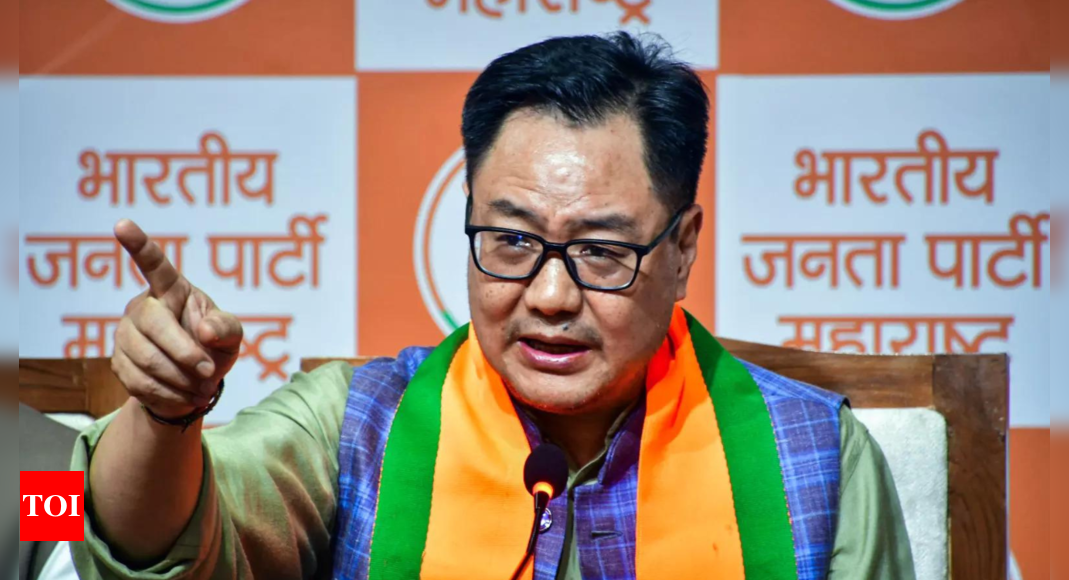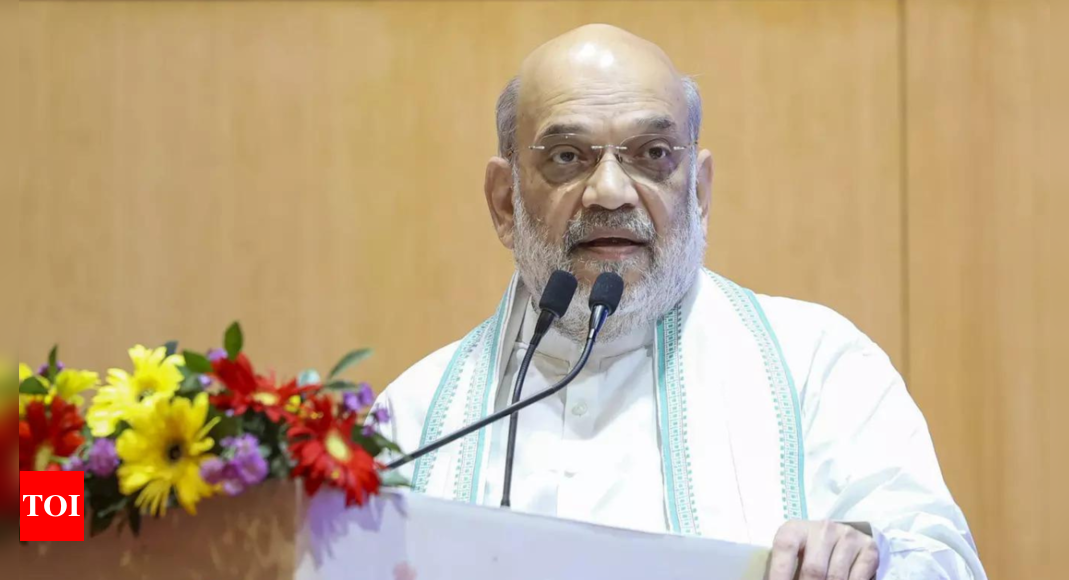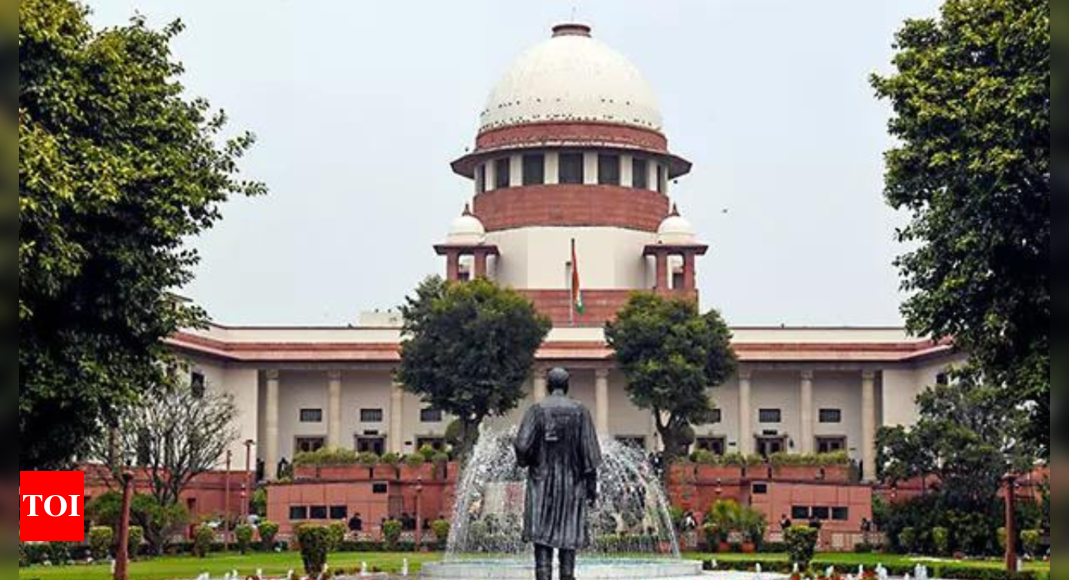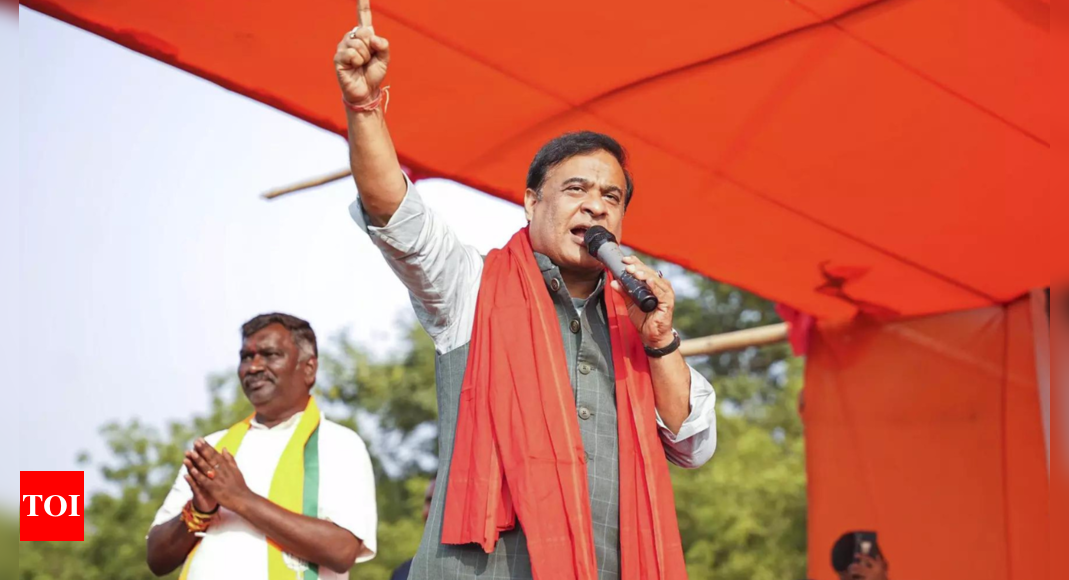
NEW DELHI: The waqf amendment bill, which proposes wide-ranging reforms in the constitution and functioning of waqf boards across the Centre and states and has been attacked by opposition parties and several Muslim bodies, will be passed in the forthcoming winter session of Parliament, parliamentary affairs minister Kiren Rijiju told TOI on Tuesday.
“We are committed to pass (the bill) within this winter session. There’s tremendous pressure from all over the country, from all sections of society, including from the Muslim community, to pass this bill,” the minister said in an exclusive interaction.
The winter session begins on Nov 25 and Rijiju emphasised that the Joint Parliamentary Committee, an all-party body which examined the legislation in detail, has been mandated to submit its findings to Parliament by the last day of the first week of the session.
“After this, the bill will be debated and put to vote,” the minister said, his assertion dispelling any doubt that the opposition’s protests, inside the JPC and outside, might lead the govt to pause. “Members of opposition parties enthusiastically participated in proceedings, made suggestions and were part of all the field trips, barring one to West Bengal, organised to familiarise members of the panel with the working of waqf bodies,” the minister said.
Rijiju, also the minority affairs minister, said the provisions of the bill to regulate functioning of waqf bodies, which preside over properties worth several lakhs of crore, were also debated among the public, with the minority affairs ministry receiving more than a lakh representations, an overwhelming majority of them being in support of the legislation. The govt has claimed that the proposed reforms will bring transparency in the functioning of waqf boards, which together hold land next only to the defence ministry and the railways.
Notices issued to properties belonging to Christians in Kerala and farmers in Karnataka only served to put the spotlight on the arbitrary functioning of waqf bodies as well as how the changes carried out by the UPA govt in waqf tribunals have conferred vast powers on them, with little accountability.
In the last monsoon session, the govt had introduced two bills – the Waqf (Amendment) Bill and the Mussalman Wakf (Repeal) Bill, in Lok Sabha on Aug 8, proposing reforms in functioning of waqf boards and their management of properties.
Rijiju said the reforms were long pending and necessary as these bodies were being controlled by certain Muslim elites while the poor and a large population from the community were deprived of their benefits.







